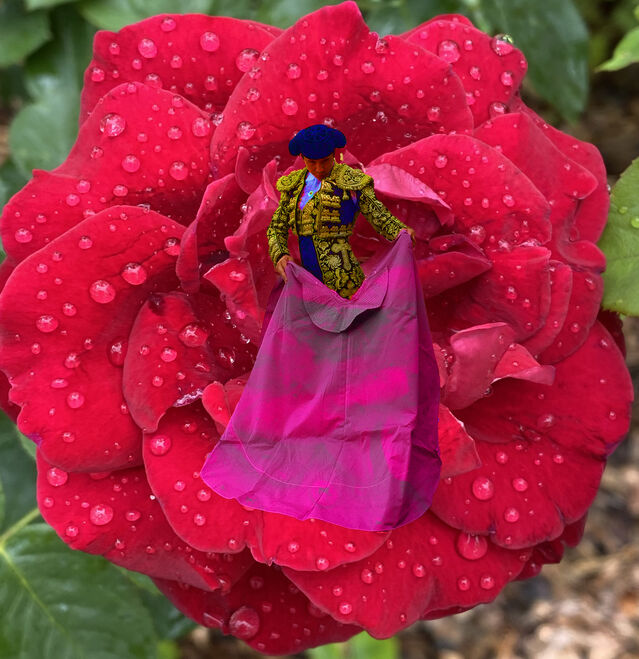Relationships
Behind the Psychological Scenes in the Opera "Carmen"
A Personal Perspective: A fresh interpretation by a woman director.
Posted July 6, 2022 Reviewed by Abigail Fagan
Key points
- Fictional characters can provide insight into psychology and personality.
- Opera dramatizes love, death, conflict, and the psychological edge of characters.
- Besides great music, songs, costumes, dances, and sets, opera can give people a chance to understand the human condition.

History was made in 1875 in Paris when Georges Bizet’s opera, Carmen, with libretto by Henri Meilhac and Ludovic Halévy, has its world premiere. Carmen has become one of the most famous and frequently performed operas in the world, and the “Toreador” aria is one of opera’s most sung or whistled tunes even among people who have never seen a performance.
The dramatic and exciting story of Carmen can be summed up this way: Alluring Roma (Gypsy) girl seduces soldier. Soldier falls in love even though she warns him that loving her can be dangerous. Soldier gives up everything to be with her, but after a while she tires of him and goes on to her next conquest: a dashing toreador (bull fighter). The soldier tries desperately to win her back to no avail. As the toreador raises his sword to pierce the heart of a bull in front of an adoring arena crowd, the soldier, without the skill of a toreador but with the madness of obsessive love, raises his knife and stabs Carmen, killing her.
Traditionally, Carmen is portrayed as a flashy femme fatale who collects men like ornaments on the charm bracelet of her life, and Don José, the soldier, is a hapless and weak-willed victim of her seductive charms.
So much for tradition. This summer, The Santa Fe Opera presents a different interpretation with Mariame Clément directing, which brings a female perspective to the story of a strong woman and a besotted man. She presents them in contemporary clothes, in the setting of a decaying carnival, clearly inviting the audience to update its perception of the Carmen story. This director sees Don José as a man with a history of violence, and Carmen as a strong woman who wants to be free but is thwarted by society’s sexualization and stereotyping of her. Clément introduces a very young girl in a frilly pink dress who twirls silently through almost every scene, representing Carmen’s youth and innocence. At times Carmen reaches out to her, cradles her, as though longing for some elusive meaning she gives to Carmen’s present life.
The psychology of fictional characters is fascinating, and some themes arise in this Carmen production that are aching for exploration.
Yes, it is true that Don José has a fiery temperament; the libretto reveals that he got into a fight within the military in the past. It also reveals that Carmen has a fiery temperament; we see her getting into a knife fight at the beginning of the opera. But there’s another layer: Carmen may be wonderfully liberated, but she is also narcissistic. Don José writhes in emotional pain in front of her when she discards him, but she is unmoved, unable to feel anything for him. And a narcissistic person can easily attract a co-dependent person, which may be a fair description of her soldier lover. He loses his identity, his job, his social standing by following her, and he even becomes an outlaw at her beckoning. And then, when he is at his weakest, Carmen loses interest in him.
To a modern audience, Don José expresses his pain through violence against a woman. And for perceptive audience members, there’s another layer to that too. Carmen has cards read by her Roma friends, and she draws the card of death. Why does she immediately act upon this as the truth? She mentions many times that she will die, and says she knows she will die when she tells Don José there is no hope for him, and heartlessly goes off to watch her toreador lover perform to adoring masses.
Of course, she had a choice — in fact, many choices. But it’s as though she draws death towards her and embraces it as an inevitability. With her strength of character, why didn’t she toss off her supposed fate the way she tossed off Don José when he was no longer of interest to her? Are we all trapped by fate or destiny? What about free will?
The two images of innocence in the opera are the young Carmen and Michaela, a young, overall-wearing woman from the country who loves Don José with a pure and unrequited love. She is capable of both self-sacrifice and devotion, yet when she kisses him — it’s a gentle kiss his mother asked her to deliver — he recoils as though in horror. He prefers the drama and challenge of Carmen.
I once met a matador in Mexico, and asked him, quite frankly, how he could kill a bull in cold blood. “It’s entertainment, it’s what the crowd wants, what it expects,” he said. “But when the bull and the matador face each other, the outcome is that one of them must die.”
Are Carmen and Don José locked in a toreador and bull scenario? Are they both shaped and imprisoned by character and life experience?
This production will charm and entertain you for sure, but it will also give you time to dig down a few layers and decide for yourself what is really going on in this famous story that is not often told this way.


